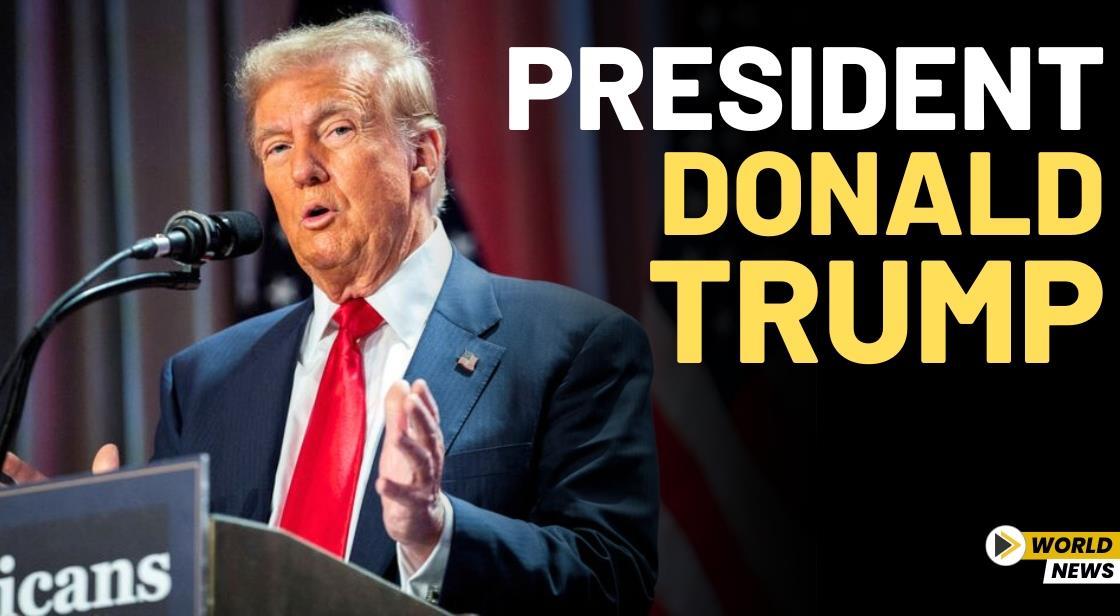Donald Trump’s Sweeping Import Tariffs Escalate Global Trade War, Trigger Market Uncertainty

News Synopsis
President Donald Trump has intensified global trade tensions by imposing a 10% tariff on most imported goods into the United States. Additionally, the White House has introduced higher tariff rates on dozens of countries, affecting both allies and economic rivals.
These sweeping trade restrictions are expected to fuel inflation, slow down economic growth, and disrupt global supply chains.
The tariffs, announced in the White House Rose Garden on Wednesday, sent shockwaves through international markets. Stock markets across the globe reacted negatively, with Japan’s Nikkei plunging to an eight-month low on Thursday morning, while U.S. and European stock futures witnessed sharp declines.
The turmoil comes amid heightened economic volatility, with U.S. stocks losing nearly $5 trillion in value since mid-February.
China, EU, and Japan Respond to US Tariff Surge
Among the hardest-hit economies is China, which now faces a 34% tariff on imports to the U.S., in addition to the 20% imposed earlier. In response, Beijing has demanded an immediate rollback of the levies, warning of retaliatory measures against American exports.
President Donald Trump’s tariff hike has also targeted key U.S. allies, including the European Union (EU) and Japan. The EU faces a 20% tariff, while Japan has been hit with a 24% rate. Expressing dismay, Tokyo declared that it is evaluating all possible responses to the “extremely regrettable” tariffs.
US Treasury Warns Against Retaliation
In an attempt to contain the fallout, U.S. Treasury Secretary Scott Bessent urged other nations not to impose counter-tariffs. He emphasized the risks of escalating trade disputes, stating: “If you retaliate, that’s how we get escalation.”
Trump’s Tariffs: A Historic High
The latest tariff policies have drastically increased the U.S. import tax rate to 22%—a level last seen in 1910, according to Fitch Ratings’ head of U.S. research, Olu Sonola. He warned that the long-term impact of these tariffs could be severe, potentially plunging multiple global economies into recession.
Economic Fallout and Congressional Opposition
Despite Trump’s claims that tariffs will boost domestic manufacturing jobs, economic experts argue that they may lead to higher consumer prices and economic downturns. Some Republican lawmakers have also expressed concern about the trade strategy, with the U.S. Senate voting 51-48 to terminate Canadian tariffs imposed by Trump. However, this legislative effort faces an uphill battle in the Republican-controlled House of Representatives.
Stephen Miran, Chairman of Trump’s Council of Economic Advisors, defended the tariff decision, acknowledging short-term disruptions but promising long-term gains: “Are there going to be short-term bumps as a result? Absolutely,” he stated on Fox Business’ “Kudlow” program.
Trump Targets Trade Loophole: Ending ‘De Minimis’ Rule
New Crackdown on Duty-Free Imports from China and Hong Kong
In addition to tariff hikes, Trump signed an order to shut down a trade loophole that allowed duty-free imports valued at $800 or less. The “de minimis” rule, which permitted duty-free shipments from China and Hong Kong, will be abolished starting May 2, 2024.
The White House claims this move is aimed at curbing the influx of fentanyl into the U.S., citing that Chinese chemical manufacturers supply raw materials for the production of the deadly drug by Mexican cartels. However, China has consistently denied any wrongdoing.
Further Tariffs Expected on Critical Sectors
The White House also hinted at additional tariffs on sectors like semiconductors, pharmaceuticals, and critical minerals, reinforcing Trump’s aggressive stance on trade protectionism.
Global Leaders React to Trump’s Trade War
European Leaders Express Dismay
World leaders have voiced concerns over the potential economic consequences of a trade war. Italian Prime Minister Giorgia Meloni urged diplomatic efforts to prevent an all-out trade war, stating: “We will do everything we can to work towards an agreement with the United States, with the goal of avoiding a trade war that would inevitably weaken the West in favor of other global players.”
US Lawmakers Attempt to Reverse Tariffs
In Congress, U.S. Representative Gregory Meeks, the top Democrat on the House Foreign Affairs Committee, is pushing legislation to overturn Trump’s tariffs. However, the bill faces slim chances in a Republican-majority Congress.
Meeks criticized Trump’s tariff policy, calling it “the largest regressive tax hike in modern history” and arguing that it disproportionately affects working-class Americans. “Trump just hit Americans with the largest regressive tax hike in modern history – massive tariffs on all imports,” Meeks said.
Conclusion: The Future of US Trade Policy
With Trump’s escalation of import tariffs, global trade relations are entering a volatile phase. The economic consequences—ranging from rising consumer prices to potential recessions—could reshape international markets for years to come. As key players like China, Japan, and the European Union weigh their responses, the future of global trade remains uncertain.
Will these tariffs bring manufacturing back to the U.S., or will they trigger a prolonged economic downturn? Only time will tell, but for now, the world economy braces for impact.
You May Like









